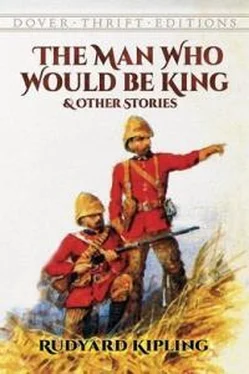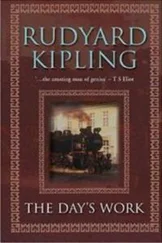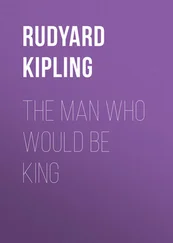Джозеф Киплинг - The Man Who Would Be King
Здесь есть возможность читать онлайн «Джозеф Киплинг - The Man Who Would Be King» весь текст электронной книги совершенно бесплатно (целиком полную версию без сокращений). В некоторых случаях можно слушать аудио, скачать через торрент в формате fb2 и присутствует краткое содержание. Год выпуска: 2014, Издательство: epubBooks Classics, Жанр: Классическая проза, на английском языке. Описание произведения, (предисловие) а так же отзывы посетителей доступны на портале библиотеки ЛибКат.
- Название:The Man Who Would Be King
- Автор:
- Издательство:epubBooks Classics
- Жанр:
- Год:2014
- ISBN:нет данных
- Рейтинг книги:5 / 5. Голосов: 1
-
Избранное:Добавить в избранное
- Отзывы:
-
Ваша оценка:
- 100
- 1
- 2
- 3
- 4
- 5
The Man Who Would Be King: краткое содержание, описание и аннотация
Предлагаем к чтению аннотацию, описание, краткое содержание или предисловие (зависит от того, что написал сам автор книги «The Man Who Would Be King»). Если вы не нашли необходимую информацию о книге — напишите в комментариях, мы постараемся отыскать её.
The Man Who Would Be King — читать онлайн бесплатно полную книгу (весь текст) целиком
Ниже представлен текст книги, разбитый по страницам. Система сохранения места последней прочитанной страницы, позволяет с удобством читать онлайн бесплатно книгу «The Man Who Would Be King», без необходимости каждый раз заново искать на чём Вы остановились. Поставьте закладку, и сможете в любой момент перейти на страницу, на которой закончили чтение.
Интервал:
Закладка:
I left them still poring over the maps and making notes on the back of the "Contrack." "Be sure to come down to the Serai to–morrow," were their parting words.
The Kumharsen Serai is the great four–square sink of humanity where the strings of camels and horses from the North load and unload. All the nationalities of Central Asia may be found there, and most of the folk of India proper. Balkh and Bokhara there meet Bengal and Bombay, and try to draw eye–teeth. You can buy ponies, turquoises, Persian pussy–cats, saddle–bags, fat–tailed sheep and musk in the Kumharsen Serai, and get many strange things for nothing. In the afternoon I went down there to see whether my friends intended to keep their word or were lying about drunk.
A priest attired in fragments of ribbons and rags stalked up to me, gravely twisting a child’s paper whirligig. Behind him was his servant, bending under the load of a crate of mud toys. The two were loading up two camels, and the inhabitants of the Serai watched them with shrieks of laughter.
"The priest is mad," said a horse–dealer to me. "He is going up to Kabul to sell toys to the Amir. He will either be raised to honor or have his head cut off. He came in here this morning and has been behaving madly ever since."
"The witless are under the protection of God," stammered a flat–cheeked Usbeg in broken Hindi. "They foretell future events."
"Would they could have foretold that my caravan would have been cut up by the Shinwaris almost within shadow of the Pass!" grunted the Eusufzai agent of a Rajputana trading–house whose goods had been feloniously diverted into the hands of other robbers just across the Border, and whose misfortunes were the laughing–stock of the bazar. "Ohé, priest, whence come you and whither do you go?"
"From Roum have I come," shouted the priest, waving his whirligig; "from Roum, blown by the breath of a hundred devils across the sea! O thieves, robbers, liars, the blessing of Pir Khan on pigs, dogs, and perjurers! Who will take the Protected of God to the North to sell charms that are never still to the Amir? The camels shall not gall, the sons shall not fall sick, and the wives shall remain faithful while they are away, of the men who give me place in their caravan. Who will assist me to slipper the King of the Roos with a golden slipper with a silver heel? The protection of Pir Kahn be upon his labors!" He spread out the skirts of his gaberdine and pirouetted between the lines of tethered horses.
"There starts a caravan from Peshawar to Kabul in twenty days, Huzrut," said the Eusufzai trader. "My camels go therewith. Do thou also go and bring us good luck."
"I will go even now!" shouted the priest. "I will depart upon my winged camels, and be at Peshawar in a day! Ho! Hazar Mir Khan," he yelled to his servant "drive out the camels, but let me first mount my own."
He leaped on the back of his beast as it knelt, and turning round to me, cried:—
"Come thou also, Sahib, a little along the road, and I will sell thee a charm—an amulet that shall make thee King of Kafiristan."
Then the light broke upon me, and I followed the two camels out of the Serai till we reached open road and the priest halted.
"What d’ you think o’ that?" said he in English. "Carnehan can’t talk their patter, so I’ve made him my servant. He makes a handsome servant. ’Tisn’t for nothing that I’ve been knocking about the country for fourteen years. Didn’t I do that talk neat? We’ll hitch on to a caravan at Peshawar till we get to Jagdallak, and then we’ll see if we can get donkeys for our camels, and strike into Kafiristan. Whirligigs for the Amir, O Lor! Put your hand under the camel–bags and tell me what you feel."
I felt the butt of a Martini, and another and another.
"Twenty of ’em," said Dravot, placidly.
"Twenty of ’em, and ammunition to correspond, under the whirligigs and the mud dolls."
"Heaven help you if you are caught with those things!" I said. "A Martini is worth her weight in silver among the Pathans."
"Fifteen hundred rupees of capital—every rupee we could beg, borrow, or steal—are invested on these two camels," said Dravot. "We won’t get caught. We’re going through the Khaiber with a regular caravan. Who’d touch a poor mad priest?"
"Have you got everything you want?" I asked, overcome with astonishment.
"Not yet, but we shall soon. Give us a momento of your kindness, Brother. You did me a service yesterday, and that time in Marwar. Half my Kingdom shall you have, as the saying is." I slipped a small charm compass from my watch–chain and handed it up to the priest.
"Good–by," said Dravot, giving me his hand cautiously. "It’s the last time we’ll shake hands with an Englishman these many days. Shake hands with him, Carnehan," he cried, as the second camel passed me.
Carnehan leaned down and shook hands. Then the camels passed away along the dusty road, and I was left alone to wonder. My eye could detect no failure in the disguises. The scene in the Serai attested that they were complete to the native mind. There was just the chance, therefore, that Carnehan and Dravot would be able to wander through Afghanistan without detection. But, beyond, they would find death, certain and awful death.
Ten days later a native friend of mine, giving me the news of the day from Peshawar, wound up his letter with:—"There has been much laughter here on account of a certain mad priest who is going in his estimation to sell petty gauds and insignificant trinkets which he ascribes as great charms to H. H. the Amir of Bokhara. He passed through Peshawar and associated himself to the Second Summer caravan that goes to Kabul. The merchants are pleased because through superstition they imagine that such mad fellows bring good–fortune."
The two then, were beyond the Border. I would have prayed for them, but, that night, a real King died in Europe, and demanded an obituary notice.
The wheel of the world swings through the same phases again and again. Summer passed and winter thereafter, and came and passed again. The daily paper continued and I with it, and upon the third summer there fell a hot night, a night–issue, and a strained waiting for something to be telegraphed from the other side of the world, exactly as had happened before. A few great men had died in the past two years, the machines worked with more clatter, and some of the trees in the Office garden were a few feet taller. But that was all the difference.
I passed over to the press–room, and went through just such a scene as I have already described. The nervous tension was stronger than it had been two years before, and I felt the heat more acutely. At three o’clock I cried, "Print off," and turned to go, when there crept to my chair what was left of a man. He was bent into a circle, his head was sunk between his shoulders, and he moved his feet one over the other like a bear. I could hardly see whether he walked or crawled—this rag–wrapped, whining cripple who addressed me by name, crying that he was come back. "Can you give me a drink?" he whimpered. "For the Lord’s sake, give me a drink!"
I went back to the office, the man following with groans of pain, and I turned up the lamp.
"Don’t you know me?" he gasped, dropping into a chair, and he turned his drawn face, surmounted by a shock of gray hair, to the light.
I looked at him intently. Once before had I seen eyebrows that met over the nose in an inch–broad black band, but for the life of me I could not tell where.
"I don’t know you," I said, handing him the whiskey. "What can I do for you?"
He took a gulp of the spirit raw, and shivered in spite of the suffocating heat.
"I’ve come back," he repeated; "and I was the King of Kafiristan—me and Dravot —crowned Kings we was! In this office we settled it—you setting there and giving us the books. I am Peachey—Peachey Taliaferro Carnehan, and you’ve been setting here ever since—O Lord!"
Читать дальшеИнтервал:
Закладка:
Похожие книги на «The Man Who Would Be King»
Представляем Вашему вниманию похожие книги на «The Man Who Would Be King» списком для выбора. Мы отобрали схожую по названию и смыслу литературу в надежде предоставить читателям больше вариантов отыскать новые, интересные, ещё непрочитанные произведения.
Обсуждение, отзывы о книге «The Man Who Would Be King» и просто собственные мнения читателей. Оставьте ваши комментарии, напишите, что Вы думаете о произведении, его смысле или главных героях. Укажите что конкретно понравилось, а что нет, и почему Вы так считаете.












